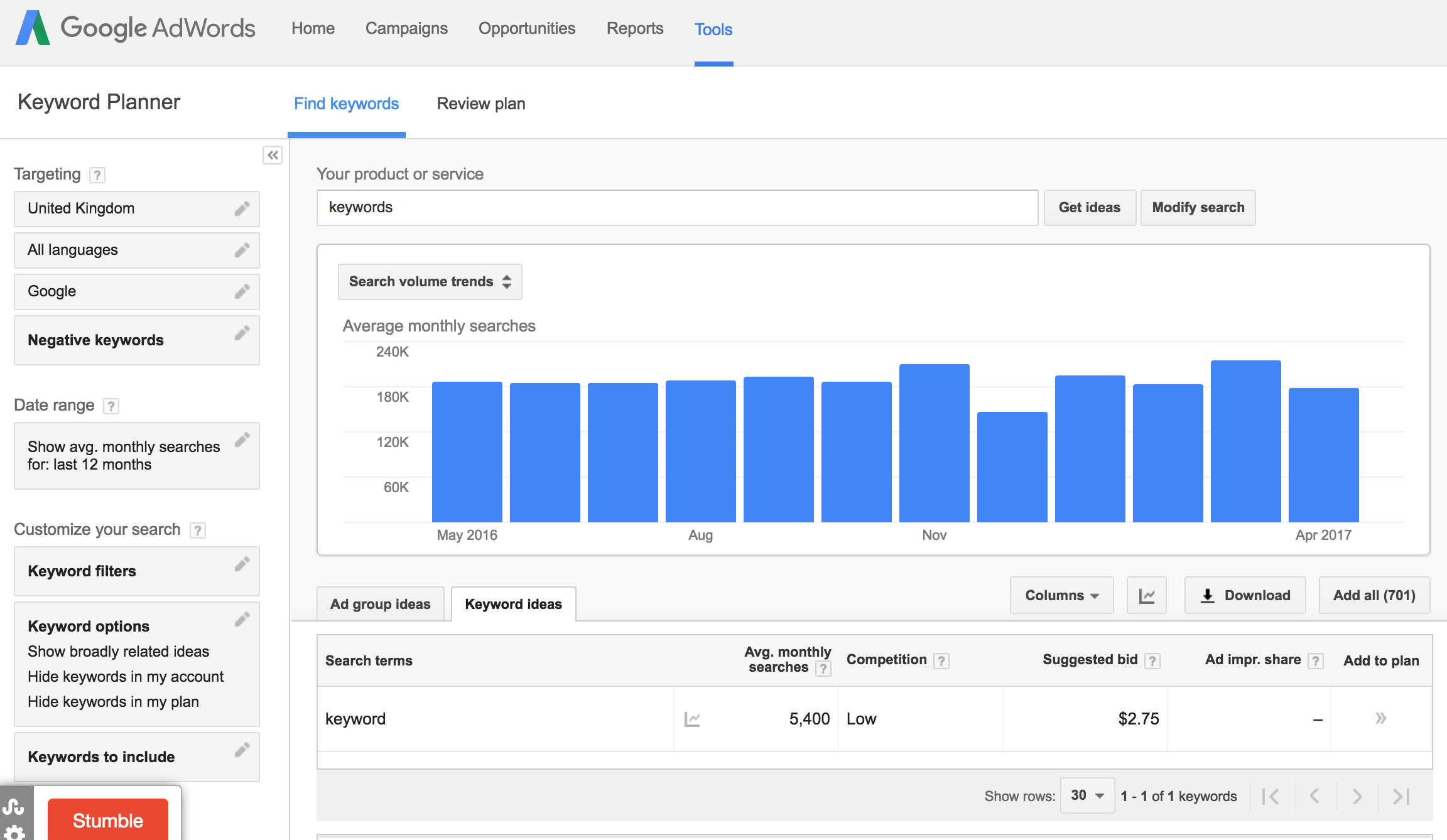Let’s show you how to use Google Keyword Planner
Google keyword planner is a free keyword research tool for both experienced and non-experienced online marketers. It does not matter whether you have a website or working on another person’s website. Google Keyword Planner was created for their Adwords or PPC users. However, the tool is an important arsenal for SEO and as well as Pay Per Click. It helps you to create an effective foundation for either SEO or AdWords campaigns.
Why should you use Keyword Planner?
Whether you are running a PPC or SEO campaign, Keyword planner will help you to identify the key phrases to target. It shows search volumes and the approximate costs associated with Adword Campaigns. It reveals the type of searches performed by your target audiences. You can dive into the research and discovery phase by entering your domain name in the search or by simply entering your target keywords. With this approach, it becomes very easy to identify relevant keywords for your Ad groups, compare the competition based on costs, discover relevant key phrases for your SEO campaign and decide on either to target longtail with less competition or to go for those high search volumes irrespective of costs.
Keywords competition for PPC and organic search
Google does not hide away the level of competition for keywords. The competition for some keywords is very fierce and as such, the cost of bidding on those keywords are usually inflated by the big guys especially when they are experiencing a high return on investments. The level of competition is identified by the following descriptions; high, medium and low. It speaks for itself. However, keywords indicated with high or medium volume search will show the costs associated whilst those with low volume search will either show the associated costs and sometimes not.
Businesses and entrepreneurs with low advertising budgets have in the past years embarked on long tail keywords because of limited competition and consequently cheaper advertising costs. Let’s say you selling “kids shows” and you have a shop based in Coventry, UK. It is best to target buyers within 10 miles away from your shop. So, instead of target “kids shows”, you will instead target “Kids shoes in Coventry or kids shoes Coventry”. As there might not be many businesses vying for your target keywords, the cost will relatively be cheap.
While the tool provides all the necessary key information you need to succeed, it is but true that a good “quality score” is all you need to rank on the first page. The reason you want to appear on the first page is because; that is where you make money. 4/5 of online searches start and end on the first page. When a searcher is unable to find what they are looking for, they simply change the keyword.
What is a quality score
Quality score is a methodology that Google deploys to determine the position of your ad. It gives you a perfect picture of your ad’s strengths and weaknesses. The method of quality score calculation and scoring takes into account the following;
- Landing page relevancy
- Click through rate
- Ad Relevancy
- Historical account performance
Google cares about user experience and satisfaction than anything else. As such ads with higher quality score tend to receive more clicks and as such more return on investment because such ads are appearing in prominent positions.
